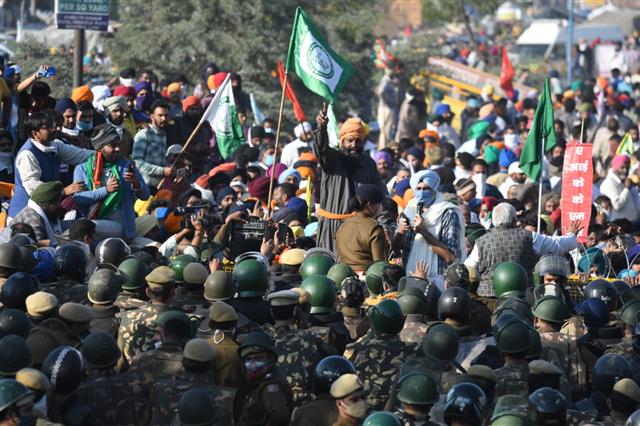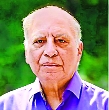
Representational image
If reality is so harsh and crude, is it worth looking at? Let us leave the fatigued farmers on the Delhi borders, the government which did not spend a day before rushing the Bills, now stonewalling, a dozen meetings and riots with Deep Sidhu and Co. Leave the Nishan Sahib at Red Fort. We are into fiction. Story telling, painting deer or a jackal on a rock wall in a cave are the oldest examples of the creative urge in human beings; not forgetting poetry of course, and drums and dance from Africa. All cultures evolved their stories, legends — evil was always vanquished, whether it was Grendel or Ravana or Kans. In India, religion and faith got woven inextricably with stories. You sat around with children and grownups, and stories evolved, right triumphed over wrong. From epics, often a collective effort of a generation, we moved to novels. The gods came down from the sky and joined us.
Utopia too was fiction in a way, so was dystopia. Can fiction be a reflection of reality that can depress or excite at will? More important is the question if reality itself is a mirror of fiction. There are numerous cases where the mind envisaged something and it came to pass. What I am trying to get at is that much of fiction is so depressing that reality seems to follow where fiction has led before.
For two months last year, I read about 30 or more novels — was a member of a jury and so had to. The dismal caught my attention, but we need to start with the celebratory. Dionysius must take the chair. Though there were just two notable volumes of short stories, one by Aruni Kashyap, who teaches creative writing at Georgia, USA, and one by Kalpish Ratna, Mumbai surgeons Kalpana Swaminathan and Ishrat Syed who write jointly under one name. In their book ‘Synapse’, Kalpish Ratna rightly make fun of Vedic science and Brahminical eugenics and tackle ghostly seductresses. If I may venture to say, even flesh and blood seductresses are hard to tackle!
The finest novel I read in 2020 was ‘Kintsugi’ by Anukrti Upadhyay, who has post-graduate degrees in management and literature, works with a wildlife trust and writes in Hindi and English. Anukrti divides her time between Singapore and Mumbai, and has worked in Hong Kong. She knows her beat well. Her research in jewellery-making in Jaipur is flawless and her narrative is seamless. She gives a feminist angle by showing women can also be good sunars. Kintsugi is the Japanese art of repairing broken pottery with gold dust, and here it is used as a metaphor for patching up lives. The narrative starts with jewellery-making. A work of fiction is known by the strength of the narrative, and the depth the writer brings to it. Hers is the story of a girl Leela, daughter of a dead goldsmith, and the Japanese Haruko who comes to Jaipur to learn the sunar’s craft, not just designing, and runs into a bull and gets a broken leg. The section on Japan is flawless, even though it ends with a lesbian suicide. The rest of the novel is sunny. It gladdened my heart to read it.
But we need to move towards the depressing if not dystopian. Is that a reflection of an age? Are writers disenchanted with what is happening around us in India? Or is it the norm the world over? Dystopia has almost become a fashion. The narrative would go along perfectly till it nears the end. A woman goes to her ancestral house in Assam where her mother had been badly treated, since she had married outside the community. Then, unaccountably, the novelist dispenses with her in a flood, and she drowns. What is more noteworthy, as in the novel ‘A Burning’ by Master of Fine Arts student Megha Majumdar, the villain triumphs in the end. We have a right-wing madam who becomes Chief Minister and raises a PT Sir, physical trainer at the college, to a party boss. An innocent woman is hanged because the PT Sir does not pass on her mercy petition. Right-wing goons attack a Muslim house, kill the family, loot gold bangles, then open the ice box. There are chickens in it, no beef! That’s the modern version of epiphany. The MFA student-novelist has made a political point, but the plot creaks, whines, squeals like a bad machine badly in need of lubrication.
What about blurbs? Amitav Ghosh writes, “The best debut novel I have come across in a long time.” The publishers, Penguin Hamish Hamilton, say, “Taut, symphonic, propulsive and riveting right from the outset, ‘A Burning’ has the force of an epic.” Cyrus Mistry in his novel ‘The Prospect of Miracles’ puts his characters in Kerala. The protagonist marries a pastor, who is a debauch. In the end, she goes off her rocker, the insanity triggered off by the pastor’s widow meeting the gardener Yesu Das. The name Yesu acts as a trigger for setting off hallucinated meetings with Jesus and angel Gabriel. In ‘The Cliffhangers’ by Sabin Iqbal, a right-winger, Balannan, gets into a clinch with a foreigner and rapes her. When he confesses, the Inspector files the case as ‘inconclusive’. Charging him would invite mayhem.
Is our fiction a mirror to our reality? Do both act as depressants?

